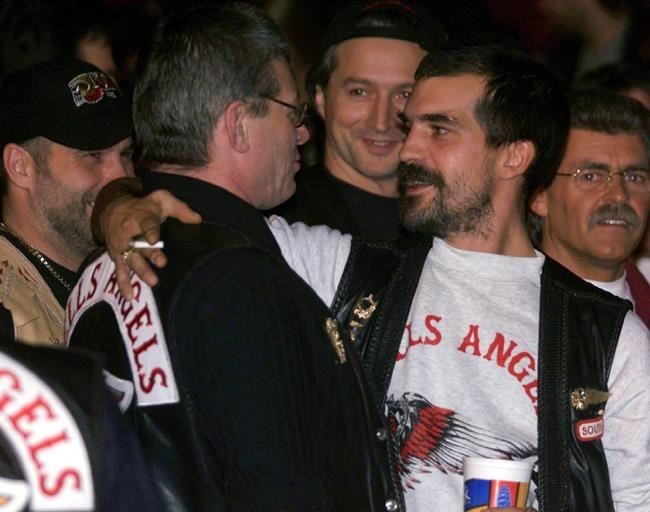MONTREAL — A Quebec politician and biker gang expert said Monday that when he learned of the death of the notorious ex-Hells Angels leader Maurice (Mom) Boucher, he immediately thought about the killer's victims.
Boucher, who died Sunday at the age of 69 in the federal penitentiary in Ste-Anne-des-Plaines, Que., north of Montreal, was imprisoned in May 2002 for ordering the 1997 murders of two prison guards, Diane Lavigne and Pierre Rondeau, during a violent period in Quebec history known as the biker wars.
"My first thoughts were with Diane Lavigne," Guy Ouellette said in an interview about the death of Boucher, whom he spoke with on several occasions. "Last month, it was 25 years since she was assassinated … just for wearing a uniform." Lavigne was murdered on June 26, 1997, and Rondeau was killed a few months later.
Ouellette, an Independent member of the national assembly and former provincial police sergeant, wrote a 2005 book about Boucher with journalist Normand Lester titled "Mom."
He said Boucher became the "warrior leader" of the Hells Angels during the deadly biker wars as criminal gangs fought for control of narcotics trafficking in the province. The conflict led to the deaths of more than 160 people between 1994-2002, including nine innocent civilians, he said.
Boucher "was the one who made decisions in the war — (deciding) who got killed and why," Ouellette said.Â
The collateral damage from the biker wars — in particular the 1995 death of an 11-year-old Montreal boy in an explosion linked to the violence — sparked widespread public indignation and led to numerous arrests of members of biker gangs across the province.
Correctional Service Canada said in a news release on Sunday that Boucher died of apparent natural causes at the Archambault Institution. He had been suffering from throat cancer.
"At the time of his death, Mr. Boucher had been serving an indeterminate sentence for two counts of first-degree murder, attempted murder, conspiracy to commit murder, assault with a weapon, and carrying a weapon for a dangerous purpose," the agency said.
Ouellette said Boucher quickly fell out of favour with the Hells Angels and was expelled after he received his life sentence. "As soon as he was convicted, the (Hells Angels) distanced themselves from Boucher …. There will not be a national biker funeral for him. He will be buried among the circle of his family."
Despite the groundswell of public anger and the political and police response to the biker wars, the Hells Angels in Quebec are in a better position today than they were in the 1990s because they are relatively uncontested, Ouellette said.
Back then, he said, several organizations were fighting for control of Quebec's drug market. The Hells Angels "are alone now," he said.
This report by The Canadian Press was first published July 11, 2022.
The Canadian Press



